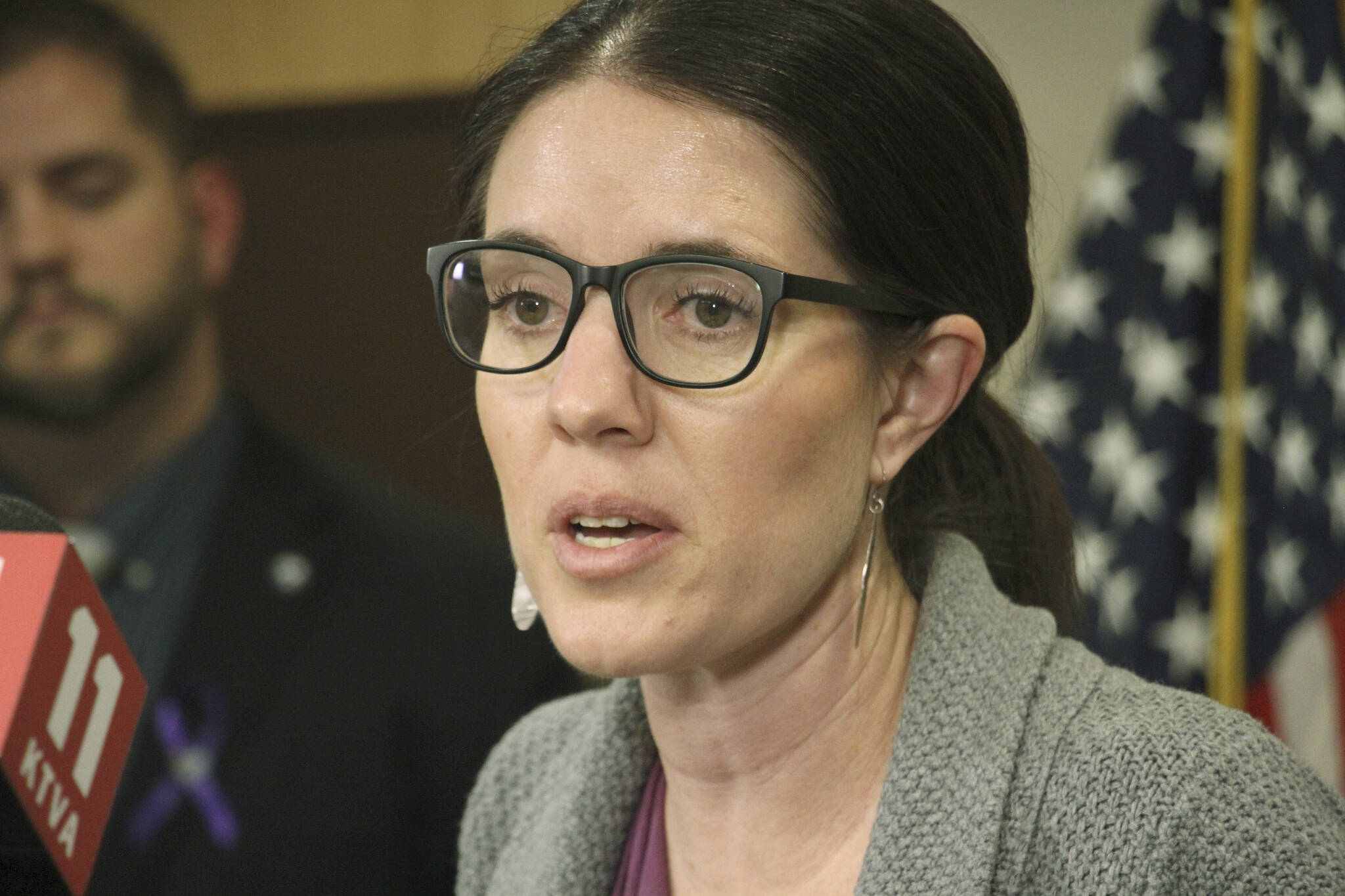Health care professionals with the state have borne the brunt of scrutiny during the COVID-19 pandemic, and have even reported violence on the job, officials with the Alaska State Department of Health and Social Services said during a Thursday press briefing.
“We’re seeing and hearing more and more stories of violence toward health care workers, including our public health workers,” Chief Medical Officer Dr. Anne Zink said. “That has been incredibly disheartening and frustrating.”
These reports come amid the worst COVID surge Alaska has seen throughout the entire pandemic. The state had the highest number of cases per capita in the country again on Thursday, according to New York Times data.
Some of Alaska’s health care workers testifying at city or assembly meetings have been met with hostility, Zink said.
“We have had reports from health care providers who have spoken out at local meetings, either being spit at or receiving threatening letters in the mail regarding their work,” she said, adding that even the public health team has “literally been under attack.”
It feels sometimes like working in health care is a battle, Zink said.
“We in health care went off to serve,” Zink said. “And they are finding that they’re coming home to being disliked because of policy and because of politics and because of partisanship, not for the job that they’ve come to do.”
Sarah Hargrave, the regional nurse manager in Southeast, said she’s seen acts of disdain where she works in Juneau as well.
“We’ve definitely had, throughout the pandemic, a handful of people when we do contact tracing that are really belligerent, disrespectful, very, very aggressive over the phone — that’s been true the entire time,” Hargrave said. “But it has grown significantly in this surge.”
She also said some health care employees have been berated in public, among other things.
“We’ve had public health nurses followed out of community meetings being yelled at (and) one of our public health centers was vandalized this week,” Hargrave said. “And we know Alaskans can do better than that. We’ve all lived here for long enough to know they’re kind, respectful and helpful people and this type of behavior doesn’t exemplify the best of Alaskans at all.”
Zink said although reports of this nature have been made, she prefers to speak about the acts of kindness she’s seen channeled at frontline workers.
She said in the emergency department she’s been able to reconnect with people she hasn’t seen for upward of 10 years.
“It’s been great to give them a huge hug and hear about how their kids have grown,” Zink said. “Seeing health care workers really rallying too, this has been incredibly heartwarming.”
Dr. Lisa Rabinowitz, a staff physician with the state, said people showing support for health care professionals always helps with morale.
“Outside the emergency department that I work, a bunch of school kids made some great posters and signs,” she said. “Something as simple as that can really make you feel like people appreciate what you’re doing.”
Officials also spoke about mental well-being for not only frontline workers, but also all Alaskans.
Director of Public Health Heidi Hedberg said Thursday that she wants to promote the state’s different mental health tools.
Alaska’s suicide prevention hotline can be called at 1-877-266-4357 or texted at 839863. Additionally, Alaska’s Careline can be called at 877-266-HELP.
The Well-Being Alaska website can be accessed at http://dhss.alaska.gov/dbh/Pages/Well-Being-Alaska.aspx.
The mental health treatment locator can be found at https://findtreatment.gov/.
“We want to make sure that every health care provider, every adult and child is aware of these tools so they don’t feel isolated,” Hedberg said.
Reach reporter Camille Botello at camille.botello@peninsulaclarion.com.

